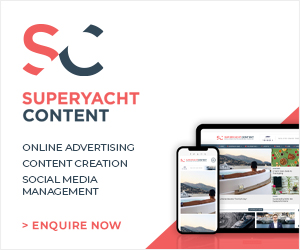Emma Baggett
Emma Baggett Director THE OM: After 12 years working in the industry, Emma came ashore to develop and deliver, ground-breaking training and degree level programmes for Deck, Interior, Chefs and Engineers. She believes in maintaining supportive relationships with superyacht crew, from guidance into and through the industry, to providing career, business, and life after yachting, mentoring and advice. THE OM is a platform to utilise Innovation, Advocacy, Collaboration and Education to help crew find pathways and solutions to achieve success in their professional lives, whilst driving the industry to develop new strategies to evolve towards an equitable and sustainable future.
Home Articles by: Emma Baggett
Social News for the Superyacht Industry
Social media influencer and digital brand expert.
Superyacht Content brings you the latest in social news for the superyacht industry.
Keep up to date with us across our social channels, and don’t forget to hit that share button!
Join our Newsletter
Copyright © 2023 Superyacht Content | Website Design by Zonkey










